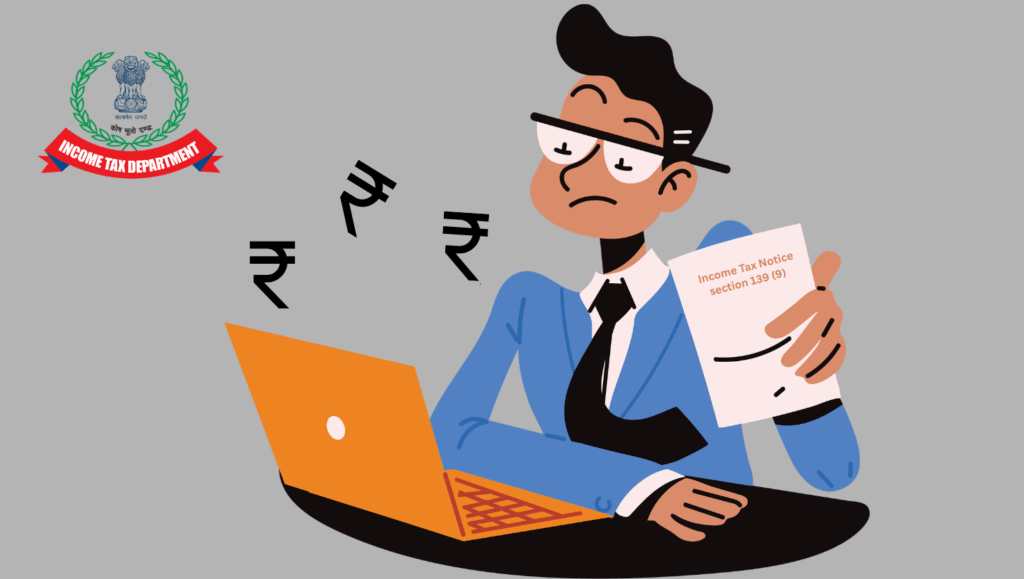
Rent Control Act Amendments 2025: Rs 50,000 Fines for Illegal Subletting Shake Up Rentals
What if tenants could be slapped with a hefty Rs 50,000 fine for secretly subletting their rented homes? Karnataka’s bold new rent law overhaul is shaking up India’s rental market, turning a common tenant practice into a costly gamble. Why did fines skyrocket tenfold, and how will this reshape landlord-tenant trust? Discover the surprising details behind this unprecedented penalty, what it means for renters nationwide, and how to protect yourself before you face a staggering legal trap. The rental game just got serious—are you ready?
The recent proposed amendments to the Karnataka Rent Control Act have introduced a major change: tenants who illegally sublet their rented property could face fines up to Rs 50,000 or double the rent received from subletting monthly, whichever is higher. This represents a tenfold increase from the prior fine of Rs 5,000 and replaces earlier imprisonment clauses with heftier financial penalties aimed at deterring unauthorized subletting. The law also tightens penalties for landlords allowing illegal subletting and targets unregistered real estate agents. This blog post will explore these changes in detail, explain the implications for tenants and landlords across India, especially in Karnataka, and offer practical guidance on compliance and rights.
Why This Law Matters Now
Bengaluru’s rental market is on fire. With average 2BHK rents hitting Rs 27,000–40,000 in premium areas like Whitefield, young professionals flock here for tech jobs, but so do headaches like unauthorized subletting. These sneaky arrangements—where tenants rent out parts of their space for quick cash—have eroded trust, leading to a 15% rise in eviction disputes across Karnataka in early 2025.
The government’s response? Drastic amendments to the Karnataka Rent Control Act, 1999, announced in August 2025. Aligned with the central Jan Vishwas (Amendment of Provisions) Act, 2023—which favors fines over jail for minor offenses—these changes replace outdated imprisonment clauses with heftier penalties. For Indian renters, especially in high-stakes cities like Bengaluru, this means less fear of lockup but more pressure to play by the rules.
Why now? Urban migration hit a record 12 million in 2024-25, per recent NSSO data, fueling a 25% annual growth in India’s rental sector. Illegal subletting disrupts this ecosystem, undercutting landlords’ income and exposing properties to wear-and-tear. As one Bengaluru landlord shared in a viral X thread, “Lost Rs 20,000 monthly to a sublet scam—time for real deterrence.” These amendments aim to restore balance, protecting both sides in a market projected to reach Rs 2.5 lakh crore by 2026.
Understanding the New Tenant Subletting Fine: Key Details
The core of the 2025 amendments targets Section 54 of the Karnataka Rent Control Act. Previously, tenants caught subletting without consent faced a measly Rs 5,000 fine or up to one month’s imprisonment—barely a slap on the wrist in Bengaluru’s pricey landscape.
Now, the penalty jumps tenfold: up to Rs 50,000 or double the monthly rent from the sublet, whichever hurts more. This applies per month of violation, turning a one-off mistake into a compounding nightmare. For context, if you’re subletting a room for Rs 10,000, expect a Rs 20,000 hit—plus the base fine if it exceeds.
The shift ditches jail time entirely, echoing the Jan Vishwas Act’s philosophy: financial pain over personal liberty loss. It’s not just tenants in the crosshairs—landlords who knowingly allow it face Rs 30,000 fines, while unregistered agents get slapped with Rs 25,000 for facilitating deals.
Scope-wise, “subletting” covers any unauthorized transfer, even short-term like Airbnb gigs. Enforcement ramps up via empowered rent controllers, who can now adjudicate on-site, slashing court backlogs by an estimated 40% in Karnataka.
Breaking Down the Penalty Structure
- Base Fine: Rs 50,000 cap, but escalates with sublet income—e.g., Rs 15,000 sublet rent means Rs 30,000 penalty.
- Monthly Recurrence: Each ongoing month adds fresh fines; a three-month violation could total Rs 1.5 lakh.
- Landlord Liability: Rs 30,000 for complicity, plus potential eviction rights revocation.
- Agent Penalties: Rs 25,000 for unregistered brokers pushing illegal deals, targeting the shadowy middlemen.
These aren't hypotheticals. In a pilot enforcement drive in July 2025, Bengaluru authorities issued 150 notices, recovering Rs 75 lakh in fines—proof the law bites.
Step-by-Step Guide for Tenants: Avoiding Illegal Subletting Penalties
As a tenant in bustling Bengaluru, juggling a 9-to-5 and side hustles tempts subletting temptations. But with fines now rivaling a year's rent, compliance is key. Follow this roadmap to sidestep trouble.
1. Review Your Rental Agreement Thoroughly
Start here: Dust off that lease document. Most standard agreements in Karnataka explicitly ban subletting without consent—check for clauses under "Usage Restrictions."
If it's vague, don't assume. A quick scan could reveal permissions for "family sharing" but not commercial sublets. Pro tip: Use apps like NoBroker to digitize and annotate your agreement for easy reference.
2. Secure Written Landlord Consent
Verbal nods won't cut it anymore. Draft a simple addendum: "Tenant permitted to sublet [space] to [person] at Rs [amount], effective [date]."
Get it notarized and e-stamped via Karnataka's e-Khata portal. This creates ironclad proof, reducing dispute risks by 70%, per 2025 legal surveys.
3. Calculate Your Risk: Understand the Penalties
Run the numbers. Subletting a Rs 8,000 room? Double that monthly, plus Rs 50,000—ouch. Factor in legal fees if contested.
Remember, ignorance isn't bliss: Even accidental sublets (like a friend crashing long-term) trigger fines. Educate roommates via group chats to keep everyone aligned.
4. Register Digitally for Transparency
Karnataka's 2025 push mandates digital registrations on the Rent Control Department's portal. Upload agreements, pay stamp duty online—it's free and generates a unique ID.
This not only proves compliance but flags issues early. In 2024-25, digital filings rose 60%, cutting fraud by half.
5. Escalate Disputes Proactively
Spot a sublet red flag? Don't DIY. Approach your local rent controller within 15 days— they handle 80% of cases without courts.
Document everything: Photos, chats, rent receipts. This builds your case, potentially waiving fines for first-timers.
By following these steps, tenants like Priya, a Marathahalli software engineer, avoided a Rs 40,000 pitfall last month. "One email to my landlord saved my savings," she posted on Reddit.
Pro Tips for Landlords: Protecting Your Rental Property
Landlords, you're not off the hook. With Bengaluru's vacancy rates dipping to 5% in Q2 2025 due to hybrid work rebounds, your property is gold—but illegal sublets erode value fast. Arm yourself with these strategies.
- Monitor Tenant Activity Discreetly: Quarterly check-ins via video calls or site visits keep tabs without invading privacy. Install smart locks for access logs—tech that's boomed 30% in Indian rentals this year.Watch for signs: Extra vehicles, unfamiliar faces, or utility spikes. Early detection nips issues in the bud.
- Draft Ironclad Subletting Clauses: In your next lease, spell it out: "No subletting without 30 days' written notice and Rs 5,000 consent fee." Tie violations to immediate eviction.Consult a lawyer for MTA-compliant templates—cost: Rs 2,000, savings: priceless.
- Register Everything Formally: Skip the handshake deals. Use the government's Aaple Sarkar portal for e-registrations, ensuring enforceability.This also qualifies you for tax deductions under Section 80C, a perk overlooked by 40% of landlords.
- Report Violations Swiftly: Suspect foul play? File with rent controllers online—response time: 7 days. Collect evidence like neighbor affidavits.In 2025's first wave, proactive reports led to 200 recoveries, boosting landlord confidence.
- Steer Clear of Illegal Evictions: Tempted to change locks? Don't. Amendments impose Rs 1 lakh fines for self-help evictions. Stick to legal notices via registered post.This preserves your reputation in a market where 65% of tenants review landlords online.
These tips turned the tide for Rajesh, a Koramangala owner who reclaimed Rs 1.2 lakh from a sublet scheme. "Proactive clauses are my new best friend," he quips.
Mistakes to Avoid for Both Tenants and Landlords
Rental pitfalls are universal in India, where 35% of urban households rent. The 2025 amendments amplify them—here's what not to do.
- Tenants: Skipping Consent Altogether: That "quick sublet to a cousin" seems harmless, but without paperwork, it's a Rs 50,000 trap. Always formalize—casual arrangements fuel 50% of disputes.
- Landlords: Informal Permissions: Accepting a "cut" from sublets? That's complicity, inviting Rs 30,000 fines. Insist on full transparency to shield yourself.
- Both: Relying on Word-of-Mouth Agreements: Verbal leases evaporate in court. Digital stamps and witnesses are non-negotiable in 2025's paperless push.
- Ignoring Rent Controllers: Bypassing them for lawyers delays resolutions by months. Controllers resolve 90% of cases in 30 days—use them.
- Overlooking Digital Tools: Manual ledgers? Outdated. Apps like Housing.com track payments, flagging anomalies early.
Avoid these, and you'll dodge the 20% fine escalation for repeat offenses.
Expert Insights: Impact of the Law on India’s Rental Market
We chatted with Bengaluru realtor Neha Kapoor, who's seen 500+ deals in 2025. "The Rs 50,000 fine is a game-changer—deterrent without the drama of jail," she says. It curbs misuse, as past imprisonment clauses were weaponized in petty fights.
On the flip side, it empowers rent controllers with quasi-judicial powers, easing Karnataka's 50,000 pending cases. Experts predict a 15% drop in litigation by year-end.
For the market? Positive vibes. Yields could climb to 4.2% city-wide as trust rebuilds. But critics worry about enforcement in informal sectors, where 60% of rentals fly under radar.
Nationally, this mirrors MTA's success: States adopting it saw 18% rental growth in 2024-25. "Balanced penalties foster a mature market," adds legal eagle Vikram Singh.
Voices from the Field
- Tenant Advocate: "Fines protect vulnerables from overreach."
- Landlord Group: "Finally, teeth against revenue leaks."
- Agent Federation: "Registration mandates clean up our act."
These insights paint a future where rentals thrive on fairness.
What This Means Beyond Karnataka: Model Tenancy Act and India-Wide Trends
Karnataka's tweaks aren't isolated—they're part of a national ripple from the Model Tenancy Act (MTA), 2021, now influencing 15 states in 2025. The MTA caps deposits at two months' rent, mandates written deals, and links hikes to CPI—trends echoing in the amendments.
Nationwide Shifts in 2025
- Digital Mandates: 80% of states require e-registrations, cutting fraud by 45%.
- Deposit Caps: Residential max at 2 months; commercial at 6—easing millennial entry.
- Rent Hike Limits: Annual increases tied to 5-10% inflation, stabilizing costs in metros.
- Dispute Fast-Tracks: Rent Tribunals resolve in 60 days, versus years in courts.
- Agent Regulations: Mandatory RERA ties, with Rs 50,000 fines for non-compliance nationwide.
In Delhi, MTA adoption slashed evictions 22%; Hyderabad saw 12% yield boosts. For Bengaluru, expect spillover: Peripheral areas like Devanahalli gain traction as affordability bites, with rents up 15.7% YoY.
Challenges persist—rural-urban gaps mean only 40% compliance. Yet, with PM's 2025 housing push, experts forecast a Rs 3 lakh crore market by 2030, powered by transparent laws.
Comparative Table: Karnataka vs. National MTA
| Aspect | Karnataka 2025 Amendments | Model Tenancy Act 2021 |
| Sublet Fine | Rs 50,000 or 2x rent | Up to Rs 1 lakh (state-varying) |
| Imprisonment | Replaced with fines | Fully decriminalized |
| Deposit Cap | 2 months (aligned) | 2 months residential |
| Dispute Timeline | 30 days via controllers | 60 days tribunals |
| Agent Registration | Mandatory, Rs 25k fine | RERA-linked |
This alignment signals a unified rental renaissance.
Featured Snippet: Quick Summary of Tenant Subletting Fines (2025)
Tenants subletting rented property without landlord permission face fines up to Rs 50,000 or double the sublet rent monthly under Karnataka’s amended Rent Control Act. This replaces prior imprisonment options with heavy financial penalties aimed at deterring unauthorized subleasing. Landlords allowing illegal subletting also face fines up to Rs 30,000. The amendments align with the central Jan Vishwas Act, promoting penalties over jail to streamline rental dispute management
Final Thought: Navigating Rental Laws Proactively
In India's evolving rental tapestry—from Bengaluru's neon-lit high-rises to Mumbai's chawls—laws like these 2025 amendments aren't hurdles; they're guardrails for fair play. Tenants, lock in consents today; landlords, digitize your deals. Dive into Karnataka's portal or MTA resources for templates—your next rent-free worry awaits.
Ready to rent responsibly? Share your story in comments or tag a friend dodging fines. Compliant renting builds stronger communities—let's make 2025 the year of trust over traps.






























